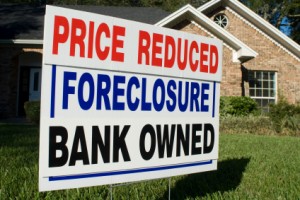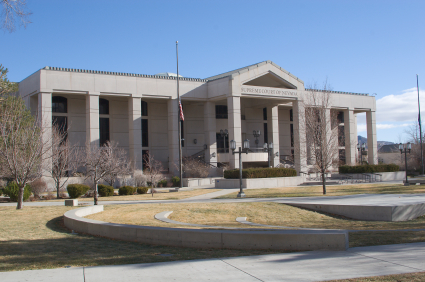David Gorka, head of Black & LoBello’s Submission and Processing department, answers some common questions clients have regarding the document submission process when dealing with a short sale and the lenders involved.
Online recommendations
- Casino Online Nuovi
- Casino Not On Gamstop
- Migliori Casino Online
- Casino Non Aams
- Migliori Casino Online
- Non Gamstop Casino
- Non Gamstop Casinos
- Games Not On Gamstop
- Best Non Gamstop Casinos
- Casino Not On Gamstop
- Betting Sites Not On Gamstop
- Non Gamstop Casinos Uk
- Casinos Not On Gamstop
- Best Non Gamstop Casinos
- Best Non Gamstop Casinos
- Non Gamstop Casino Sites UK
- Non Gamstop Casino Sites UK
- UK Casino Sites Not On Gamstop
- UK Casinos Online
- Meilleur Casino En Ligne France
- UK Online Casinos Not On Gamstop
- Slots Not On Gamstop
- Sites Not On Gamstop
- Migliori Casino Non Aams
- Best Non Gamstop Casinos
- Migliore Casino Non Aams
- Crypto Casino
- Casino Online
- Paris Foot Belgique
- Migliori Casino Non Aams
- Meilleur Casino En Ligne
- Casino Con Visa
- Nouveau Casino En Ligne
- Site De Paris Sportifs
- Migliore Casino Non Aams
- Pagamenti Crypto Scommesse
- Casino Senza Invio Documenti
- Casino Non Aams
- Casino En Ligne Fiable
- Casino Online Non AAMS
 The outlook for the New Year is grim if you own a home in Las Vegas and are not paying attention to your legal rights. Likely, you are one of the two-thirds of our valley’s property owners who are in an underwater position, most being more than 50%. Since property values are expected to drop further in 2011 along with demand and ability to purchase, it seems that local property values are in a death spiral.
The outlook for the New Year is grim if you own a home in Las Vegas and are not paying attention to your legal rights. Likely, you are one of the two-thirds of our valley’s property owners who are in an underwater position, most being more than 50%. Since property values are expected to drop further in 2011 along with demand and ability to purchase, it seems that local property values are in a death spiral.
Pundits predict that nationally, 1 in every 5 mortgages could be foreclosed on in 2011. Though the foreclosure crisis has persisted for the last three years, they say we are only one-fourth of the way through the troubled loans. Using that statistic and the, until now, popular dead beat borrower argument, 20% of our home-owning population is an irresponsible sub-prime borrower who should have never bought a home in the first place! Seriously, should the blame and the cure all be loaded on the tax-paying borrower?
What about the suspicious loans that were handed out freely, the documents the originators botched or left out all together, the securitization process that created huge pools of loans to be sold to trusting investors, the fabricated foreclosure fees and documents, and the filing of hundreds of thousands of false court documents? Is this the non-paying borrowers fault as well? Will we never call these banks to participate in the foreclosure crisis that they helped to create?
One can be optimistic only in the respect that there is beginning to arise a general understanding of how the banks function and why they are not incentivized to do anything other than position borrowers for foreclosure. As an originator bank (in charge of creating and processing the loan documents and sales), as well as the servicer bank, foreclosure serves several very important purposes: 1) it hides faulty and fraudulent documentation; 2) it avoids put-backs from investors who bought the securitized loans the banks sold; and 3) it creates default servicing revenue. In reality, the bank controls the process from start to finish and therefore, has opportunities to hide and avoid liability while earning a fee to do so.
The large number of foreclosures we continue to experience in Nevada does nothing other than breed more foreclosure and loss. Foreclosures must be avoided either through mutual consent between the lender and borrower or by enforcing legal foreclosure standards. The “dead beat borrower” argument is nothing more than an easy diversion from the real problems such as banks’ reverse-engineering loan documents, “robo-signing”, deliberately pursuing improper foreclosures, and manufacturing “junk fees” that cause or add to the pain of foreclosures. To date, the banks have enjoyed the diversion.
There is a ground-swell against these practices in small and large scale. Not only have borrowers begun to voice their disgust at bank practices, states have begun to take formalized action against the biggest offenders. Attorney General Masto filed a lawsuit against Bank of America for misleading and deceptive trade practices, making Nevada the second state to take such a stand.
Our local politicians, however, cannot be the only elected officials paying clear attention to the problem. We must all face this problem head on, and those we send to Washington must not continue to have their understanding clouded by politics and pockets. There can be no hope and no change unless we pay attention and demand that every player in this crisis be held accountable for their portion of the problem.
Servicer banks have created false and faulty documents, they have foreclosed on homes improperly and without right, they have preyed on the lethargy and ignorance of consumers, and they have been caught doing so in Nevada. By uncovering deceptive practices, faulty documents, improper procedures, and other technical and obvious arguments, you may be able to modify your loan, short sale with a release of the deficient amount, or gain other favorable results. But you must be willing to get involved. We have helped many clients who are frustrated and unable reach closure.
If you are a borrower who has failed to pay, you do have rights that can and should be protected. Sitting idly by is what the banks expect from you, what do you expect of yourself?
Tisha Black Chernine, Esq.
Should lenders be forced to reduce the principal amount owed on home mortgages that are “underwater”? The proposition probably would win the vote of homeowners in Nevada, because CoreLogic, a Santa Ana, Calif.-based analysis company, calculates that two-thirds of homeowners in the Silver State owe more than their home is worth — the highest percentage in the country. To read the full article, click here.
 On November 16, 2010, the Senate Committee on Banking Housing and Urban Affairs held a hearing on Mortgage Services and Foreclosure Practices which included, Bank of America, among other lending institutions, along with consumer advocates and academics. Coincidentally, the Congressional Oversight Panel has recently produced a 127-page report, “Examining the Consequences of Mortgage Irregularities for Financial Stability and Foreclosure Mitigation” which also examines lending and foreclosure practices. Now that our elected officials are beginning to understand the depth of the securitization issues, let us all hope that the curtain will continue to draw back on the practices that have lead to the complicated mess we know as the “foreclosure crisis.” More importantly, let’s hope that our elected officials respond to this enlightenment, as they should, in the best interest of their constituents and the nation.
On November 16, 2010, the Senate Committee on Banking Housing and Urban Affairs held a hearing on Mortgage Services and Foreclosure Practices which included, Bank of America, among other lending institutions, along with consumer advocates and academics. Coincidentally, the Congressional Oversight Panel has recently produced a 127-page report, “Examining the Consequences of Mortgage Irregularities for Financial Stability and Foreclosure Mitigation” which also examines lending and foreclosure practices. Now that our elected officials are beginning to understand the depth of the securitization issues, let us all hope that the curtain will continue to draw back on the practices that have lead to the complicated mess we know as the “foreclosure crisis.” More importantly, let’s hope that our elected officials respond to this enlightenment, as they should, in the best interest of their constituents and the nation.
Both inquiries gave insight to the convoluted foreclosure and securitization (pooling and repackaging of loans into an entity, stocks of which are sold to investors) practices. The goal of politicians is to avoid foreclosure and keep those people who can afford to, and desire to, in their homes. Unfortunately, the fact that only 1 in 6 loans can be modified under bank and federal programs was lost on the Senate committee. More importantly, far less than 1 in 6 borrowers will ever receive an offer to modify.
Nevada consistently holds top rankings in:
- Foreclosure rates;
- Loss of property value;
- Unemployment and wage reduction; and
- Bankruptcy filings.
Given our dire circumstances, even a meager modification ratio of 1: to 6 would be a blessing to Nevadans. Alternatively, many financially capable owners are unmotivated to attempt to modify their loan due to the loss in real estate values in Nevada, residential and commercial alike, which are staggering compared to the rest of the nation.
Currently, Nevada has suffered a loss of more than 50% in property values, with experts projecting an additional loss of 10% in 2011. Since most of the modifications merely defer the principal, reduce interest rate and extend the term, the economic result of a typical modification is that the borrower will ultimately pay more for their property, over a longer period of time, than the “bubble rate”. For this reason, even if the banks were cooperative in granting modifications, a standard modification is not the answer for Nevadans.
What Nevadans are looking for is a meaningful principal reduction, but that is not on the table. The concern, according to the lenders and their servicers, is that principal reductions would result in actual losses to the banks and servicers. Moreover, banks do not want to write down principal because they would have to recognize the loss at the time it is reduced. The loss recognition could cause the bank to be deemed insolvent, a fact which exists regardless. Therefore, according to servicer banks, principal reductions cannot be granted as they pose yet another “systemic risk.”
As a nation, we are wrapped in “systemic risk”: the fall of the dollar, lack of manufacturing, foreign wars, terrorism, low standards of education, and more. However, at some point, our elected officials are going to have to select one of our many problems and start dealing with it, as Americans have historically done, head on. There is no better place to start than at home, as in American homes.
Nationally, it is estimated that 40% of all mortgages are securitized. However, and amazingly, regulators who govern the industry do not know the exact number of securitized mortgages. Regardless, this 40% is valued at nearly $7.4 Trillion Dollars. Though I was not able to determine the relevant value of securitized loans in Nevada, we do know that approximately 80% of our real estate market traded (was sold or refinanced) between 2003 and 2007. A historically large amount of those loans were packaged as securities and sold to other banks or investment funds for profit. Most importantly, the servicing of a majority of the securitized loans was retained either by the originating bank or its affiliate. This servicing element is an important profit engine and document control opportunity that the politicians are just beginning to examine.
On a performing loan, one where the borrower is paying, the servicer’s job is to collect monies from the borrower and pass them to the beneficial interest holder (owner of the note). In a non-performing loan, where the borrower is not paying, the servicer is paid for assessing penalties and fines, monitoring files to make sure that the paperwork is proper, foreclosing on the loan or following the borrower through bankruptcy. Servicers are paid to deal with the payment or non-payment of a loan, they are not paid to modify a loan and they are not concerned with the quality of the borrower’s service, or lack of service, as the borrower is not the default servicer’s client. The beneficial interest holder is the default servicer’s client.
Unlike servicers, the beneficial interest holder has a keen financial interest in the willingness and ability of a borrower to pay the note. Servicers are therefore in conflict with their client. The long term health and participation of the borrower is of no matter to the servicer as the servicer’s business model is not based on long term relationships but short term profitability. The fact is, servicers make more money when the loan is not performing, as they are able to collect more fees and penalties when a borrower is in default or is foreclosed upon. Taking this business model into account, it is not a stretch to think that a servicer would counsel a borrower to quit paying and push a foreclosure. Politicians now recognize that this compensation structure is contrary to promoting performance or modifications.
The long held cultural belief that banks are sophisticated and organized lends a credibility to their securitization and foreclosure processes that is not warranted. Bank procedures and information are rarely questioned. Moreover, it is the rare individual that can afford to hire counsel for protection. Borrowers’ lack of financial ability to defend themselves or prosecute, coupled with outdated cultural beliefs that banks are above suspicion for the fees and fines they charge, has produced an “above the law” culture that motivates servicer banks to cut corners and employ unchecked trickery. For years, consumer and bankruptcy attorneys in nearly every state have filed and won cases against servicers for abusive practices related to their default fees and practices. However, the abuse has not abated. The robo-signing is but another example of such manipulation.
The servicer banks claim the robo-signing was a “technical issue.” It can hardly be called a “technical” error when a “sophisticated” party to a legal proceeding manufactures false affidavits, counterfeits mortgages and assignments, reverse-engineers documents to support foreclosures, and forecloses. Given the history of instances where courts have fined banks for these practices, the consistent and constant fines for fraudulent documents are hardly an “error”. These practices are the affect of a lawless servicing culture that has yet to be held accountable. It is more like organized crime than a technicality.
The problem, unfortunately extends beyond the bogus fees and bad documents typical in a bankruptcy or judicial foreclosure proceeding. In a lien theory state, such as Nevada, there is no system to police the servicer banks. Before securitization, the Trustee marshaled the process. The trustee is supposed to be an independent party that insures the foreclosure process is conducted pursuant to the law. This is no longer the case. Trustees are often owned by, or an affiliate of, the default servicer.
In a foreclosure, whether it is judicial or non-judicial, only the mortgagee (the beneficial interest holder) has the authority to direct a foreclosure. Because the banks, now servicers, originated these loans and perhaps disregarded the requirements of transferring the loans, they have an additional conflict of interest with the securitized investors to whom they sold the loans. Recall that servicers are supposed to protect the process and call out problems with documents. In many cases, the servicers are hesitant to point out document defects as they often would be blowing the whistle on themselves or their affiliates, hence robo-signing. Document defects would also allow the new beneficial interest holders (owner of the note) to force buy-backs to the originator (now servicer) bank which sold them the note.
The securitization process, failures in documentation and other serious matters were discussed in the Congressional Oversight Panel’s report. The report noted that property and ownership documents may not have been properly transferred in the securitization process. The sheer volume of mortgages securitized resulted in the fall of the underwriting quality, and the failure to abide by the strict transfer requirements mandated by the trusts that bought the mortgages. The failure to properly document and transfer the mortgages could result in the trusts either not owning the loan or not having the ability to foreclose. Again, be reminded that the banks and servicers invented and controlled the securitization process making it possible in large volume. If the trusts have botched paperwork or no paperwork at all due to assignment failures, the trust investors would be profoundly impacted causing investor claims against servicers and those in the security chain and demands for put-backs to skyrocket. The “if” is a big and very well protected “if.” Such losses could put tax payers’ bailout money at risk if the banks become insolvent as a result.
There is thought to be nearly $6.2T of securitized debt in default (this does not include second liens). If even a portion of this could be forced back on to the banks because it was not properly transferred to the investor trust (called an “investor put-back demand”), the originator bank (who is likely to now be the servicer bank) could be in dire financial straits as the debt associated with the defaulted loans would greatly exceed working capital of banks. It is therefore in the best interest of the servicer banks to push loans into foreclosure because they can collect the default fees, sweep the document problems under the rug, and avoid put-backs and investor law suits, all while no one is looking.
The documentation problems are widespread in securitized loans. It is nearly impossible to discover who owns a note if it has been securitized. Traditionally, if a note was sold, it was recorded in the public records for the whole world to see. The banks, however, decided that they could do better than what county recorders and court houses have done for hundreds of years. Instead of following the traditional process, the banks decided to quit recording mortgage related documents in the public records. Their reasoning: the sheer velocity and volume of transactions jammed up the public recorder’s office and prevented them from transferring/selling loans fast enough. So, the banks/securitizers created MERS (“Mortgage Electronic Recordation System”). MERS is a private recordation system which effectively removes from the public record the identity of mortgage owners or those in its chain. With the MERS system, when you want to discover whether the document chain is correct, you must ask the bank or servicer to provide it to you. This document control is more than a convenience; it enables the documents to be manufactured and “corrected” before the public can detect it or claim it as a defense to foreclosure.
 But alas, it appears that judges and voters have begun to question the banks with justified suspicion. Let us hope our elected officials continue to do the same. Attorneys across the country have rallied against the crafty practices of the banks and servicers for years with little success. Despite these well-grounded arguments, judges and politicians continue to be swooned by the long held belief that the banks are never wrong. When the general public cannot afford to prove it, we must rely on officials.
But alas, it appears that judges and voters have begun to question the banks with justified suspicion. Let us hope our elected officials continue to do the same. Attorneys across the country have rallied against the crafty practices of the banks and servicers for years with little success. Despite these well-grounded arguments, judges and politicians continue to be swooned by the long held belief that the banks are never wrong. When the general public cannot afford to prove it, we must rely on officials.
Our banking industry holds all of the monetary, infrastructural and political cards necessary to keep the door to their closet locked. Through courts and political inquiries which question the authenticity and accurateness of all documents claimed to support their position, we must pry back the doors and hold banks and servicers accountable for their portion of this catastrophe. Banks and servicers can no longer enjoy the “untouchable” culture. If we are going to put this economy back on solid footing we must:
- Establish a Nevada task force to investigate the foreclosure conduct of trustees and default servicers and conformance with Nevada statutes;
- Ban privatized recordation systems and force compliance with traditional recording requirements;
- Enact laws that prevent MERS from foreclosing in its name or as a nominee;
- Force banks and servicers to demonstrate proof of proper mortgage documentation before foreclosing, regardless of judicial or non-judicial foreclosure;
- Punish those banks and servicers who have prepared or filed false documentation or worked in avoidance of the letter of the law in foreclosures, bankruptcy or otherwise;
- Force principal reductions where the documentation is faulty or the property is under water by more than 50%;
- Create a tax structure that incentivizes investor/owners to modify loans;
- Create a mortgage only bankruptcy where formulaic modifications are granted;
- Force banks to take the losses on bad debt they created; and
- Allocate all mortgage related losses so that not just the government, investors, and borrowers are damaged. (The banks need to suffer the loss for, in fact, they are more than in simple part responsible for creating it.)
With the help of the Congressional Oversight Panel’s report and the recent United States Senate hearings, the nation can begin to identify the hypocrisy of a banking culture that wags its fingers at borrowers who either cannot pay or refuse to pay their mortgages, and cry “moral hazard”. The banks and their servicers created and drove the securitization machine. Now, as our economy suffers from this process, the banks are still at the wheel, avoiding suspicion and pocketing money made from the rise and burst of the bubble.
District Court Judge Susan Johnson on Thursday issued a temporary restraining order against enforcement of a state regulatory advisory opinion that caps the amount collection agencies may charge under “super priority” liens against homes in foreclosure. To read the full article click here.
 Tisha Black Chernine, Esq. speaks on the Heidi Harris Show about mortgages that could be “frozen” by the government and the process of loan modification. Click here to hear the audio clip.
Tisha Black Chernine, Esq. speaks on the Heidi Harris Show about mortgages that could be “frozen” by the government and the process of loan modification. Click here to hear the audio clip.
Randy M. Creighton, Esq., of Black & LoBello explains what you should know before you try to get rid of your second mortgage by declaring Chapter 13 bankruptcy in the state of Nevada.
 Click to read Attorney General Catherine Masto’s letter to Bank of America.
Click to read Attorney General Catherine Masto’s letter to Bank of America.
 Nevada attorney general asks lenders to temporarily halt foreclosures
Nevada attorney general asks lenders to temporarily halt foreclosures
As politicians complain about potentially massive mortgage fraud around the country, a top state official is calling on all residential lenders to halt foreclosures in Nevada. To read the full story in the Las Vegas Review Journal, click here.
 Pursuant to articles in today’s Wall Street Journal, Bloomberg, and the Washington Post, Bank of America Corporation has placed a moratorium on all foreclosure proceedings across the U.S. to examine its foreclosure documentation problems. This includes all Bank of America owned properties in the state of Nevada.
Pursuant to articles in today’s Wall Street Journal, Bloomberg, and the Washington Post, Bank of America Corporation has placed a moratorium on all foreclosure proceedings across the U.S. to examine its foreclosure documentation problems. This includes all Bank of America owned properties in the state of Nevada.
Bank of America is the first financial institution to stop all foreclosure actions Nationwide, a fall-out from the recent discovery that the banks have been remiss in keeping proper documents. The banking industry has been under fire for its use of “robo-signers”, bank employees who authenticate and certify documents necessary in foreclosure actions. Robo-signers are alleged to have executed thousands of affidavits a day without actually reviewing the corresponding loan files and related documents. The failure to properly certify the documents could lead to the unwinding of many foreclosures. In response to the growing concern, many lawsuits have been filed nationwide, governmental investigations have begun and the title insurance industry has refused to insure REO properties in some states.
Bank of America, J.P. Morgan Chase, GMAC, PNC and Ally Financial Inc. postponed foreclosures in 23 states last week just as the foreclosure press was accelerated. In August, lenders took possession of a record 95,364 homes and increased foreclosure filings to 338,836 homeowners, or one in every 381 households, according to RealtyTrac.
The decision by Bank of America to extend its ban on foreclosures to all 50 states takes effect Saturday. A spokesperson for Bank of America stated this morning that the bank will not re-commence the foreclosure process until it can properly assess all of its documentation. This may be a bit of reprieve for cash-strapped homeowners but may have an untolled adverse affect on those involved in real estate sales.
If you have recently been foreclosed upon or if your house has been or will be taken as part of a bankruptcy proceeding, call our office for information. Black & LoBello will be updating our website and Twittering with important information related to the foreclosure moratorium and its affect on Nevada residents and real estate professionals.
Follow us on Twitter, Facebook, or at our website (www.blacklobellolaw.com).
Tisha Black Chernine, Esq.
 With foreclosure filings growing by the month, some judges are holding banks and loan servicers’ feet to the fire to prove they “own” the mortgage and that they know what information is in the filing.
With foreclosure filings growing by the month, some judges are holding banks and loan servicers’ feet to the fire to prove they “own” the mortgage and that they know what information is in the filing.
Read more: http://bit.ly/cnrhfz
 As foreclosures increase, the nation’s largest mortgage financier has added 61,929 new REO properties to its inventory in the second quarter. In an effort to step up the unloading of these properties, FANNIE has created its First Look program. See, HomePath.com .
As foreclosures increase, the nation’s largest mortgage financier has added 61,929 new REO properties to its inventory in the second quarter. In an effort to step up the unloading of these properties, FANNIE has created its First Look program. See, HomePath.com .
The program is aimed at assisting owner-occupied purchasers and public entities with purchasing the properties. Once the residence has been foreclosed upon, and assuming it has not been purchased by a third party through the foreclosure process, owner occupants, public entities and their partners can submit offers without competition from investors. The First Look period is typically 15 days.
On Thursday, new incentives were added to this program. Qualified homebuyers who will be owner-occupants can receive up to 3.5 percent of the final sales price that can be used toward closing cost assistance, including a home warranty, if available. In addition, selling agents representing owner-occupants will receive a $1,500 bonus. However, the bonus will be hard earned. Eligible offers must be submitted on or after September 23, 2010, and must close by December 31, 2010. The sale must close within 60 days of the offer being accepted.
Tisha Black Chernine, Esq.
 A survey by the Pew Research Center found that more than a third – 36 percent – of Americans believe the practice of “walking away” from their mortgage payments and their home is acceptable, at least under certain circumstances. Of the homeowners surveyed, 48 percent say the value of their home declined during the recession. It’s these underwater homeowners who are more likely than those whose home did not lose value to say it’s acceptable to renege on a mortgage (20 percent vs. 14 percent respectively).
A survey by the Pew Research Center found that more than a third – 36 percent – of Americans believe the practice of “walking away” from their mortgage payments and their home is acceptable, at least under certain circumstances. Of the homeowners surveyed, 48 percent say the value of their home declined during the recession. It’s these underwater homeowners who are more likely than those whose home did not lose value to say it’s acceptable to renege on a mortgage (20 percent vs. 14 percent respectively).
Joshua D. Carlson, Esq.
Mark your calendars. This FREE Town Hall meeting hosted by Prudential Americana features experts from various fields related to the Real Estate market to answer YOUR questions. This meeting will be on September 25, 2010 at 10:00 AM located at Green Valley Ranch, Conference Room La Sirena IV. Please submit any questions you would like to have answered at this very important meeting throughTwitter or our Facebook Discussions Tab.
Don’t miss the upcoming Town Hall meeting in which Tisha Black, Esq., will address YOUR legal questions about the current Real Estate market. This meeting will be on September 25, 2010 at 10:00 AM located at Green Valley Ranch. Please submit any questions you would like to have answered at this very important meeting through Twitter or our Facebook Discussions Tab.
Prudential Americana hosts Tisha Black Chernine as a legal expert on the housing market in Las Vegas. Click here to watch the video.

